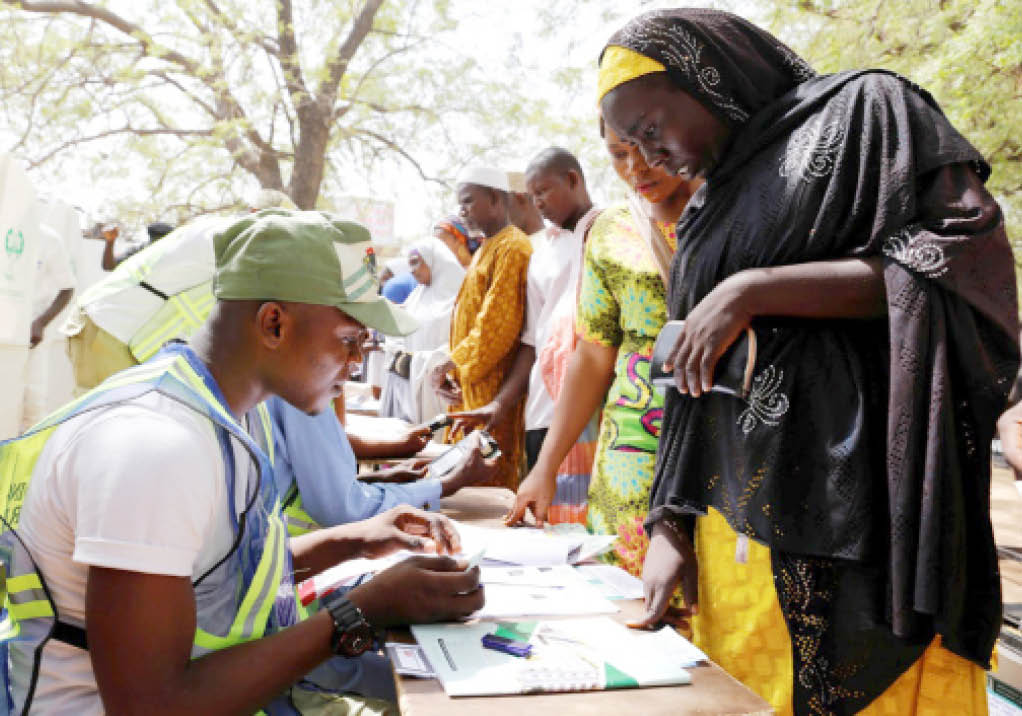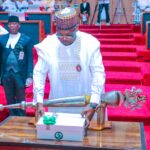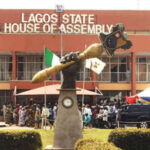Nick Dazang
It was Claire Adelabu Abdulrazak, the elegant Nigerian Television Authority (NTA) anchor, who captured the ambience of the Governorship and State House of Assembly Elections aptly. As she took over the anchoring of NTA’s Verdict 2023 Studio on Sunday, March, 19, she announced, with gravitas, that the elections were taking a turn for the better.
Quoting Bob Dylan (formerly Robert Allen Zimmerman), the poet laureate, uber singer-song writer and the first musician to win a Noble Prize in Literature, she enthused: “The Times Are-a Changin”!
The times were, on that eventful Sunday, changing indeed. They were changing, like the quicksand, for the Election Management Body (EMB) and other stakeholders involved in the conduct of the 2023 General Elections. For three weeks previously, Nigerians were outraged by the conduct of the Presidential and National Assembly Elections of February 25.
This outrage is said to inform the low turnout of voters in some jurisdictions across the country during the elections of March 18. In spite of the many upsets, they (Presidential and National Assembly Elections) wrought, the series of demystifications they engendered and the many myths, orchestrated over the years by certain actors, which they exploded, Nigerians were indignant.
Nigerians were angry that the Independent National Electoral Commission (INEC) could not deliver on the smooth deployment of the Bimodal Voter Accreditation System (BVAS) and the upload of Polling Unit outcomes on the INEC Result Viewing Portal (IReV), which it had solemnly pledged.
The commission had predicated the conduct and delivery of the 2023 General Elections on these two major pillars. Sadly, even though the BVAS worked, there were many embarrassing glitches. The Registration Area Technical Support Staff (RATECHS), whose remit it was to troubleshoot these glitches, seemed either to have gone Missing In Action (MIA) or disappeared into thin air.
The upload of the PU results on the IReV, which hitherto conferred further transparency and credibility to off-cycle governorship elections and spurred many voters to participate in the process, simply collapsed.
These failings, expectedly, aroused anger across the country. Millions of Nigerians were disappointed with INEC. Media and civil society, two critical stakeholders, which had staunchly vouched for the commission, had helped campaigned for the enactment of the Electoral Act 2022 and had marketed the two innovations introduced by INEC, felt embarrassed and used.
Members of civil society, particularly, could not conceal their angst. They used all the public platforms available to them to disclaim the commission and to express their bitterness. Some refused to be consoled.
But the conduct of the governorship and state assembly elections were such a massive shift and such a sea change as to assuage the anger of stakeholders. It was a remarkable improvement and a huge departure from the bungling of the previous ones.
The decrepit logistics which dogged the conduct of the presidential and national assembly elections were spruced up and they worked exceptionally well. Most polling units across the country opened at 7.30am. And at 8.30am, as enunciated in INEC’s Regulations and Guidelines, accreditation and voting had commenced in not less than 85 per cent of the PUs across the country.
Thanks to the refresher trainings carried out during the one week of postponement, the BVAS worked seamlessly. Of all the over 50 high-profile accreditations across the country, which this writer was privileged to watch on television, only that of the Secretary to the Government of the Federation (SGF), Boss Mustapha, failed. Similar reports of excellent performances by the BVAS came from our rural backwaters.
By 9.00pm of Election Day, not less than 80 per cent of PU results across the country had been uploaded on the IReV to the delight of stakeholders. By 5.30am the next day, most states had crossed the 100 per cent threshold in terms of the upload of PU results on the IReV.
By Sunday afternoon (coinciding with Abdulrazak’s upbeat effusion), INEC seemed not only to have atoned for its sins in the conduct of the Presidential and National Assembly Elections of three weeks previously, but it also appeared on its way to an ineluctable redemption.
The process, as spearheaded and driven by INEC, had worked superlatively well for all to behold.
The two major pillars – BVAS and IReV – on which the elections were premised were held. And this time the pillars held firmly and sturdily.
If the process was superlative and worked with clockwork precision, the outcomes were a grotesque antithesis. They failed, thereby rendering INEC’s victory short-lived and phyrric. For while the elections panned out excellently at the level of the polling unit, spanners began to be thrown in the works at various levels of the collation by desperate and unscrupulous politicians.
Not a few collation centres were attacked, at the behest of politicians, by hoodlums and arms-wielding thugs. Election officials were either killed outright or abducted. In many jurisdictions, citizens were either intimidated into voting or prevented from voting.
In a number of states, there were lurid reports of voter suppression. This phenomenon was informed by ethnic profiling, a rare and novel development, that is beginning to rear its ugly head in the electoral process.
These dastardly acts, apart from diminishing our elections, teach us a number of poignant lessons. First, they instruct us, crystal clearly, that the best-planned and conducted elections can be messed up and torpedoed at the point of the outcomes (where results are collated and returned).
Second, the outcome of elections can trump or make nonsense of an excellent process conducted by the Election Management Body as has happened in the aftermath of the Governorship and State House of Assembly Elections, which commenced on an excellent note.
Third, it shows, lucidly, that whereas the EMB has demonstrated a capacity to reform itself and to be responsive to the yearnings of Nigerians and members of the international community for credible, transparent and inclusive elections, the political class is not always on the same wavelength or page as the EMB and other critical stakeholders such as the Voters, Media and Civil Society.
The political class pays scant regard to the delivery of good governance. It pays little or no deference to due process, hence the legion of pre-election cases. Instead, it excels in the disruption of the process and it lays premium on coarse and crude pursuit of power.
Thus, even as we demand that INEC should deliver superlative elections and perfect its processes, we must insist that the political class reforms itself; that it be of good behaviour; and that it sets its sights firmly on improving the weal of the people.
It is only when good governance is delivered that Nigerians can have a stake in the democracy project. It is only then that they can assiduously seek its sustenance. Otherwise, ours will be a Sisyphean task: an effort that is intractable and impossible to complete on account of its being pointless and endless. a

 Join Daily Trust WhatsApp Community For Quick Access To News and Happenings Around You.
Join Daily Trust WhatsApp Community For Quick Access To News and Happenings Around You.


